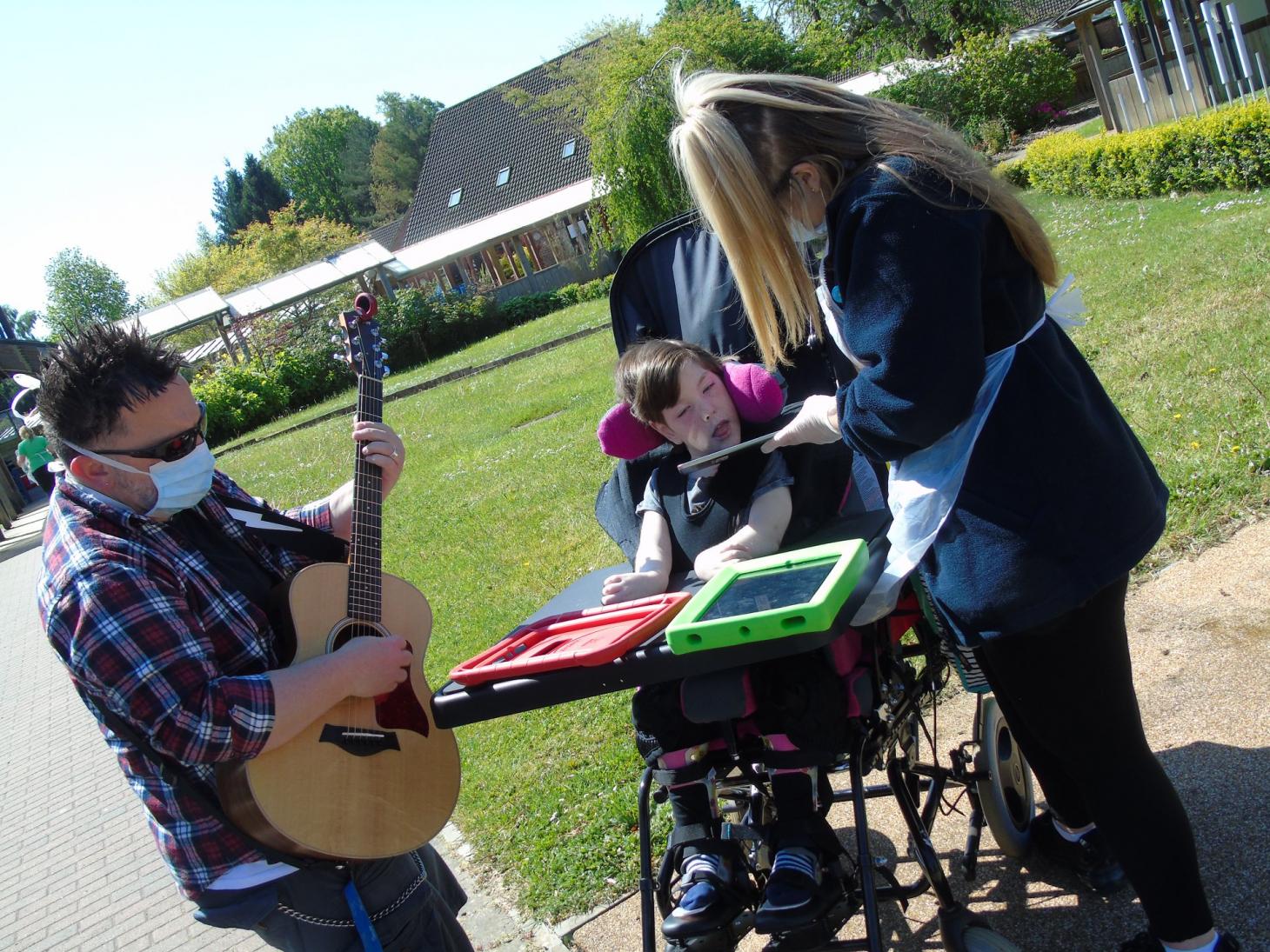When the Government called for school closures on 20 March this year, they set out some exceptions: schools for children with ‘vulnerable needs including those who have a social worker and those with Education, Health and Care Plans’ should remain open.
As pupils at The Children’s Trust School and Tadworth Tots Nursery have complex education, health, therapy and care needs, we remained open for all day and residential pupils. Although coronavirus didn’t force us to close our doors, we contacted all parents and carers immediately, to agree a clear and safe way forward.
Day pupils
All pupils, except six children who needed to shield at home, came in on a daily basis. They continued to be taught by teachers and supported by our therapists, health and care teams in our school building. For one pupil we made arrangements to completely shield her in a room on her own, with two members of staff. We also admitted children from outside The Children’s Trust whose nurseries were closed due to coronavirus.
Residential pupils
All residential pupils remained on site, as they live here in our purpose-built Houses. To ensure social distancing was possible we decided that the children should remain in their Houses and we brought the teaching to them! Teachers were allocated to each House and planned with the wider team about how to continue to deliver the support the children needed. Everyone in the team – education, health, therapy, care and play – really came together to support all young people, including those who required shielding.

Kenny, a pupil at The Children's Trust School
Virtual learning
Any child who was not able to come to the school or was being shielded was still included in our lessons through virtual learning. Thanks to your donations, we were able to purchase new laptops and tablets to give everyone access to education and activities.
Children who were shielding at home joined in too, with a virtual ‘hello’ session set up by our Virtual Learning and Welfare Lead Officer. It wasn’t all work, our brilliant specialist teachers organised yoga and music sessions. At a time when we were all feeling a little unsettled, it was good to look after mental health and emotional well-being too.
Did you know?
Our School is one of the only special schools in the UK that provides education, therapy and care exclusively for children and young people with profound and multiple learning difficulties and complex health needs.
Keep calm and carry on
The coronavirus outbreak, social distancing and PPE have provided big obstacles to our usual ways of interacting with the children we care for. But our team has risen to the challenge and adapted to provide play in a new way.
Keren Holding, our Leisure and Activities Co-ordinator, says: “I am still based on site, supporting the Play Team to provide a sense of familiarity in this strange and uncertain time.
"We are working together to make sure there is a constant schedule of fun activities and resources for the children."
For example, all of the young people in Oak House enjoyed a game of bingo recently, playing from the doorways of their bedrooms so social distancing guidelines were met.
Lots of people have been turning to baking and it’s no different here, the children love making cakes and biscuits. There’s even an early morning session in Oak House – ‘Wake Up, Shake Up’ – where everyone ‘meets’ in their doorways to do exercise to music and to see each other.
In touch with sensory stories
Something that brings together fun, communication skills and learning are sensory stories – where each action in a story is accompanied by a sensory stimulus. These sensory props give meaning to abstract descriptive words such as sticky, cold and shiny.
For example, take the children’s classic story We’re Going on a Bear Hunt by Michael Rosen. As the family goes through the grass, the story teller can brush pompoms or grass over the knees of the listener. And when they reach the cave, the storyteller can use torches to look around the room, look at faces in the mirror and track lights. And so much more!
The benefits of sensory stories:
- Increases vocabulary, and develops creative writing skills
- Encourages listening skills and develops attention span
- Promotes imaginative play and self-expression.
Children can use the props to re-enact the story, and may then use the props to develop their own stories. Enjoy the magic of sensory stories with your children or grandchildren – find a story at thechildrenstrust.org.uk/sensory-stories

